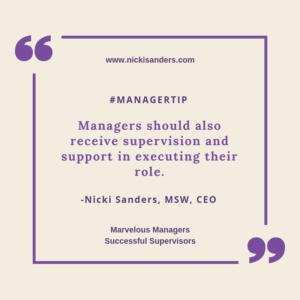How to Know if You’re a Bad Boss
By Julianna Lopez, Writer, Business News Daily
One of the biggest problems companies constantly face is recruiting and retaining talented employees. The most common reason employees leave their current companies? Their bosses. According to a new survey of U.S. businesses released by Grovo, a workplace learning innovator company, a staggering 98 percent of managers surveyed felt the managers at their company needed more training to deal with professional development, conflict resolution, employee turnover, and time and project management.
For the first time, employees have the opportunity to hold their bad bosses accountable for their actions. While sites like Glassdoor allow employees to share their opinions and observations about the company as a whole as well as its CEO, Completed.com is a new site that allows you to rate your boss in the effort to make them more accountable for their actions.
Here are five mistakes bad managers make that cause good people to quit.
1. They overwork their employees.
Overworking your employees is never a good thing, but managers often make the mistake of forcing the lion’s share of the work onto their best people. Not only does this make your employees feel as though they’re being punished for their hard work, but it burns out the most talented members of your team.
If you need a member of your team to take on a larger workload or put in more hours, it’s only fair to compensate them with a raise, promotion, title change or all three. Talented employees are usually willing to take on a more demanding workload, but you’ll lose them if they feel they’re being overworked and not fairly compensated or appreciated.
2. They don’t recognize contributions and reward good work.
Never underestimate the power of a pat on the back and telling an employee, “Job well done!” In the same vein as the previous entry, the top members of your team – who are already self-motivated to perform at their best – will push themselves harder if their efforts are recognized. Speak with your employees to find out how they’d like to be rewarded for their hard work, whether that’s recognition or a raise, and uphold your end of the deal.
3. They don’t honor their commitments.
One of the biggest mistakes you can make – both in business and in life – is not keeping your word. With each commitment you uphold to your employees, you become more trustworthy and dependable in their eyes. If you fail to keep your promises, however, your employees may come to see you as uncaring. And since you don’t honor the promises you’ve made, why should they feel any sense of loyalty to you?
4. They don’t care about their employees and fail to develop their skills.
Keeping employees happy is one of the best ways a company can ensure success – both for the employee and the company. For a manager, a large part of keeping employees happy is striking the right balance of professionalism and empathy. Great bosses celebrate their employees’ successes, challenge them to learn and grow, and acknowledge and empathize when they’re going through a rough time.
It’s not practical or feasible to expect employees to work 40-plus hours a week for someone who doesn’t care about them beyond their productivity and output. One of the best ways to show you care is by empowering your employees to constantly expand their skills and push themselves to work beyond their comfort zones. Not only does this allow employees to explore other avenues they might be interested in pursuing further, but it shows you care about their success even when they move on to their next opportunity.
5. They hire and promote the wrong people.
Good, hardworking employees want to work with like-minded individuals. When managers don’t put the time and effort into hiring good people to join the team – or even worse, when they promote the wrong people – it can be a huge slap in the face. It’s the same with new managers joining the company.
“When ineffective managers are moving in and up, companies should consider that a development red flag,” said Joris Luijke, the vice president of People at Grovo. “Quality management is one of the biggest predictors of employee engagement, productivity and company culture. Organizations can shorten the learning curve by identifying the specific behaviors of their best managers and delivering bite-sized, engaging learning experiences that turn knowledge into actions.”
Even if you haven’t made any of these mistakes, you can use these examples as a guide to ensure you’re being the most effective and fair leader for your team.
Most great leaders claim they learned what not to do based on how their previous managers treated them. Richard Branson, founder of the Virgin Group, said, “Respect is how to treat everyone, not just those you want to impress.”
That’s ultimately what these five examples boil down to – respecting your employees and treating them well goes a long way to ensuring their happiness and success, your success as a manager, and the overall success of your team and the company.
